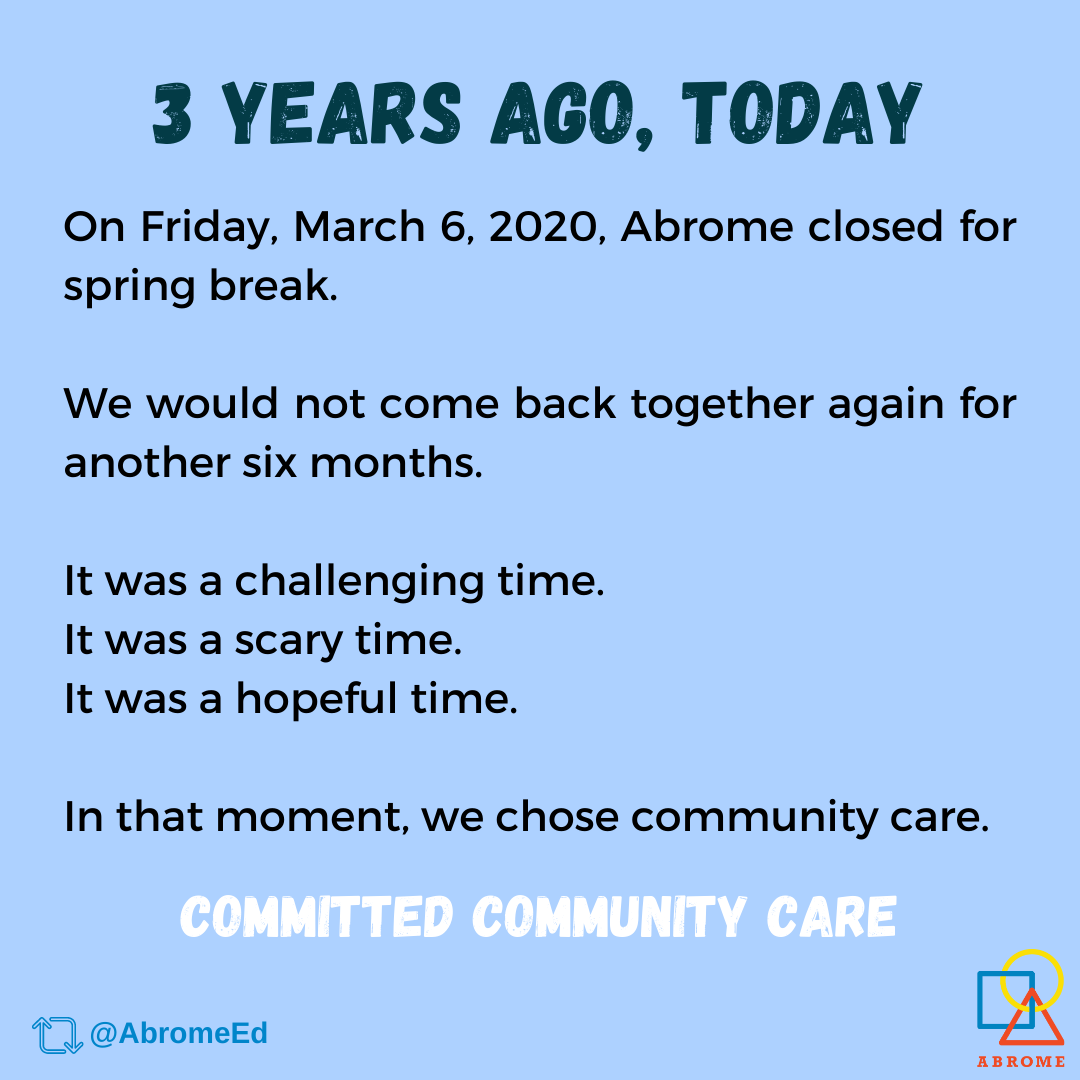Three years ago, today, Abrome broke for spring break not knowing if we would return when spring break was scheduled to end on March 23rd. News of a dangerous novel coronavirus left us debating what our options were given the responsibility we had to support the young people in our learning community, and the duty we had to protect them, their households, and the staff at Abrome. When it became clear that we would not be able to safely come back together, we extended spring break to three weeks. On March 30th we came back together remotely and stayed remote through the end of that first pandacademic year.
It was a challenging time. We needed to find ways to get some Abromies reliable internet connections and devices to log in to our remote gatherings. And connecting with each other over video was difficult when we were used to meeting in person. We struggled financially because some families pulled their kids when we went remote. We worked hard to maintain a sense of calm assurance that we would all come through it together.
It was a scary time. There were people in our immediate community who were at high risk. There were elderly grandparents, two people living with cancer, multiple immunocompromised folks, uninsured people and others without access to quality health care, frontline essential workers, and members who were at risk of losing their homes if they could not work. We wanted to protect and support them, and while we could protect them in part by not meeting in person, could we really support them against the conditions of society that put them at increased risk?
It was also a hopeful time. We saw people staying home to protect others from disease. We saw people coming together to support one another through mutual aid efforts. Against the backdrop of illness and death, for a moment we saw people focused less on getting ahead by leaving others behind, and more on considering how they could help others survive. We saw people questioning the practices and structures of not only schooling, but of society, and some began to believe that they could alter or abolish those practices and structures.
In that moment, when no one knew how the pandemic would play out, Abrome made a choice that was clear ethically, but murky from a business perspective. We reaffirmed our commitment to community care. Community care means centering the needs of those who would be most impacted by our decisions and actions, and leveraging our privilege to support them. It is easy to talk about centering the needs of others when the costs are low, or when it causes only a temporary inconvenience. It is another thing to do so when society demands that we turn away from those most impacted for our own benefit. Unfortunately, the moment of societal solidarity soon began to fall apart as the demands to turn away grew strong. We chose not to turn away.
It is not preordained that “everyone will get it eventually.” We do not need to “learn to live with COVID.” Institutions are not powerless to stop the spread. We chose people over profits, and solidarity over enrollment. We chose to embrace a multi-layered approach to preventing the spread of COVID-19 that includes masking, physical distancing, filtration and ventilation, testing, and vaccination. Because of those efforts, and some luck, we have not had a single case of spread within our learning community. And our culture is stronger for it, even if our community is smaller—74% of lost enrollment since the pandemic began has due to our pandemic policies.
Three years in, the pandemic continues. And we will continue to take it seriously because we are committed to community care.
—


